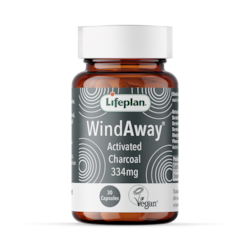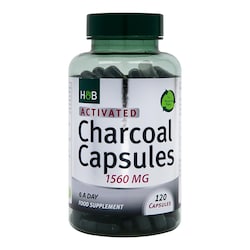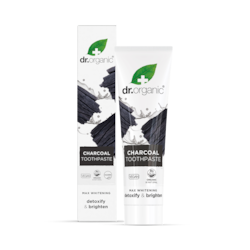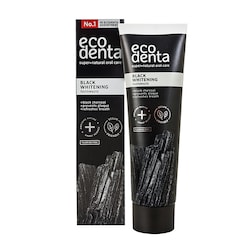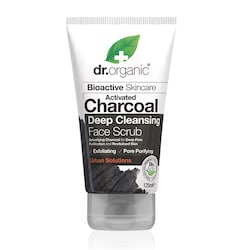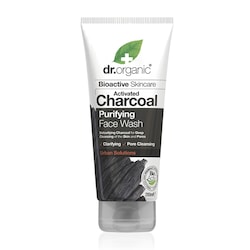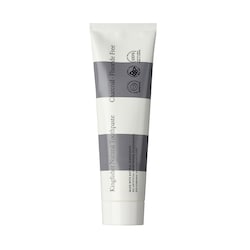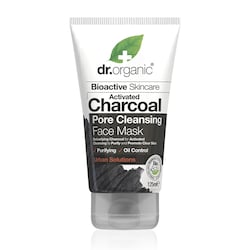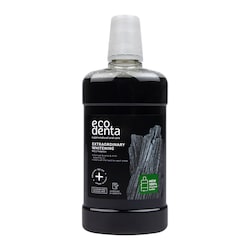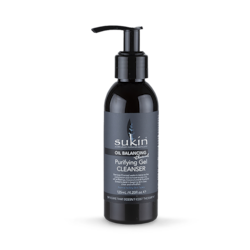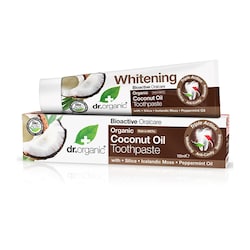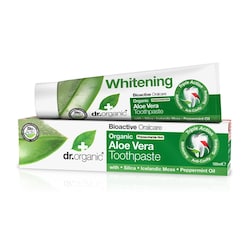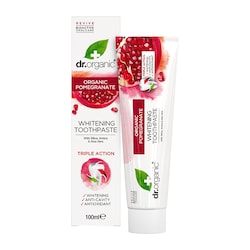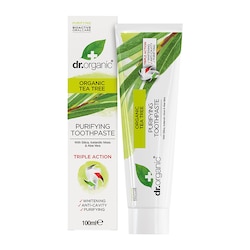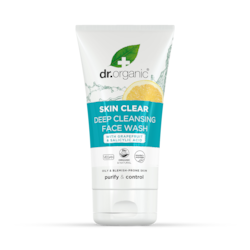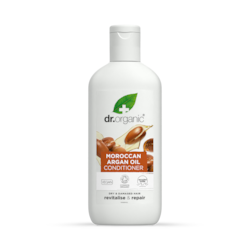20% off £30
Code:SPEND
Activated charcoal: benefits, dosage, side-effects

Activated charcoal is growing in popularity for teeth whitening and detoxing but what exactly is it? Get the skinny on this substance including other uses.
Find out all about activated charcoal, including what it does, the benefits to taking it and how much you might need
Written by Rosalind Ryan on January 26, 2019 Reviewed by Carolina Brooks on January 31, 2019
What is activated charcoal and what does it do?
Activated charcoal is a fine, powdered form of the regular sort of charcoal that you’ve probably been putting on barbecues for years.1 But you’re more likely to find activated charcoal in drinks, skin-care products and even toothpaste.
The charcoal is ‘activated’ by heating it to very high temperatures, which changes its internal structure. This creates a lot of small holes in each particle, increasing the surface area and making it more porous.2
One teaspoon of activated charcoal has roughly the same total surface area as a football field!3 The result is that activated charcoal is very absorbent, which means it can soak up or ‘trap’ a range of different substances.4 The charcoal then carries them out of the body, eliminating them from your system.5
Activated charcoal has been used in hospitals for years as an emergency treatment for overdoses,6 and this absorbent quality has led to its growing popularity as a product to support detoxification.
Benefits of activated charcoal
What does activated charcoal do in the body?
Activated charcoal is excellent at binding with toxins inside the body, so it’s often used in hospitals to treat different types of poisoning, including drug overdoses.7 This reduces how much poison the body absorbs, limiting the effects on the patient.8
However, it’s rarely used to treat alcohol poisoning, as alcohol is both rapidly absorbed by the gut and badly absorbed by activated charcoal.9 Researchers are currently studying activated charcoal for more potential health benefits, including:
You’ve probably seen plenty of YouTube clips with vloggers extolling the teeth whitening effects of charcoal toothpaste, but there’s currently no clinical evidence that is has this effect.10 However, there is a small amount of research on its potential purifying benefits for the skin.
In 2017, Indian researchers reported that activated charcoal could help draw impurities such as dirt, dust, chemicals, toxins and bacteria to the surface of the skin, making it easier to wash them away.11
Several studies have found a link between activated charcoal and reduced LDL, or ‘bad’, cholesterol levels.
According to one, published in The Lancet in 1989, people with high cholesterol who took 8g of charcoal three times a day for four weeks experience a 41% reduction in LDL cholesterol.12 Later research by the University of Helsinki, Finland, found that patients taking different doses of charcoal every day for three weeks had reduced LDL levels between 29% and 41%, while levels of ‘good’ HDL cholesterol increased by up to 121%.13
Activated charcoal can help relieve gas/flatulence, a common symptom of bloating.
A 1981 study discovered that the charcoal could reduce the number of ‘flatus events’ – yes, farting – after a gas-producing meal,14 while a trial in 2003 found that activated charcoal could reduce gas and abdominal bloating.15
Although not all studies have found a similar effect, the European Food Safety Authority says there is enough evidence to show that activated charcoal can reduce ‘excessive intestinal gas accumulation’.16
Activated charcoal has also been studied for its potential effects on:17
- preventing hangovers
- improving kidney function
- reducing symptoms of fish odour syndrome, a metabolic syndrome that results in abnormal excretion of a particular chemical, for example in the breath, urine and sweat

How much activated charcoal is safe to take?
There is no safe upper limit set for activated charcoal in the UK, but products often range from 25mg to 250mg.18
The EFSA recommends taking 1g at least 30 minutes before a meal, and 1g afterwards.19
Make sure you follow any instructions on the product packaging or label, and see your GP or a nutritionist if you have any concerns.
What are the side-effects of taking activated charcoal?
Although no serious side-effects have been reported after taking or using activated charcoal, you may experience nausea, black stools or constipation. Activated charcoal could also prevent you from absorbing any medications, so discuss this with your GP before you start taking it.
Advice is for information only and should not replace medical care. Please check with your GP before trying any remedies
- Jennifer Huizen. Medical News Today. What are the benefits of activated charcoal? Available from https://www.medicalnewstoday.com/articles/322609.php
- Kerry Torrens. BBC Good Food. What is activated charcoal and is it safe? Available from https://www.bbcgoodfood.com/howto/guide/what-activated-charcoal-and-it-safe
- National Capital Poison Center. Activated charcoal Available from https://www.poison.org/articles/2015-mar/activated-charcoal
- Neuvonen PJ. Clinical Pharmacokinetics of Oral Activated Charcoal in Acute Intoxications Available from https://rd.springer.com/article/10.2165/00003088-198207060-00001#page-1
- Alina Petre. Healthline. What is activated charcoal good for? Available from https://www.healthline.com/nutrition/activated-charcoal
- Kerry Torrens. BBC Good Food. What is activated charcoal and is it safe? Available from https://www.bbcgoodfood.com/howto/guide/what-activated-charcoal-and-it-safe
- Juurlink DN. Activated charcoal for acute overdose: a reappraisal Available from https://www.ncbi.nlm.nih.gov/pmc/articles/PMC4767212
- Neuvonen PJ. Clinical Pharmacokinetics of Oral Activated Charcoal in Acute Intoxications Available from https://rd.springer.com/article/10.2165/00003088-198207060-00001#page-1
- Hultén BA, et al. Does alcohol absorb to activated charcoal? Available from https://www.ncbi.nlm.nih.gov/pubmed/3710499
- Brooks JK, Bashirelahi N, Reynolds MA. Charcoal and charcoal-based dentifrices: A literature review Available from https://www.sciencedirect.com/science/article/abs/pii/S0002817717304129
- Mendhekar SY, et al. Formulation and evaluation of gel containing neem, turmeric, aloe vera, green tea and lemon extract with activated charcoal and honey Available from http://www.ejpmr.com/admin/assets/article_issue/1512093026.pdf
- Kuusisto P, et al. Effect of activated charcoal on hypercholesterolaemia Available from https://www.ncbi.nlm.nih.gov/pubmed/2874369
- Neuvonen PJ, et al. Activated charcoal in the treatment of hypercholesterolaemia: dose-response relationships and comparison with cholestyramine Available from https://www.ncbi.nlm.nih.gov/pubmed/2612535
- Hall RG Jr, et al. Effects of orally administered activated charcoal on intestinal gas Available from https://www.ncbi.nlm.nih.gov/pubmed/7015846
- Mann SN. Activated Charcoal Reduces Lactulose-Induced Breath Hydrogen in Patients with Excessive Gas and in Controls Available from https://ucdavis.pure.elsevier.com/en/publications/activated-charcoal-reduces-lactulose-induced-breath-hydrogen-in-p
- European Food Safety Authority. Scientific Opinion on the substantiation of health claims related to activated charcoal and reduction of excessive intestinal gas accumulation (ID1938) and reduction of bloating (ID1938) pursuant to Article 13(1) of Regulation (EC) No. 1924/2006 Available from https://efsa.onlinelibrary.wiley.com/doi/pdf/10.2903/j.efsa.2011.2049
- Alina Petre. Healthline. What is activated charcoal good for? Available from https://www.healthline.com/nutrition/activated-charcoal
- RXList. Activated charcoal Available from https://www.rxlist.com/consumer_activated_charcoal/drugs-condition.htm
- European Food Safety Authority. Scientific Opinion on the substantiation of health claims related to activated charcoal and reduction of excessive intestinal gas accumulation (ID1938) and reduction of bloating (ID1938) pursuant to Article 13(1) of Regulation (EC) No. 1924/2006 Available from https://efsa.onlinelibrary.wiley.com/doi/pdf/10.2903/j.efsa.2011.2049
- Alina Petre. Healthline. What is activated charcoal good for? Available from https://www.healthline.com/nutrition/activated-charcoal


